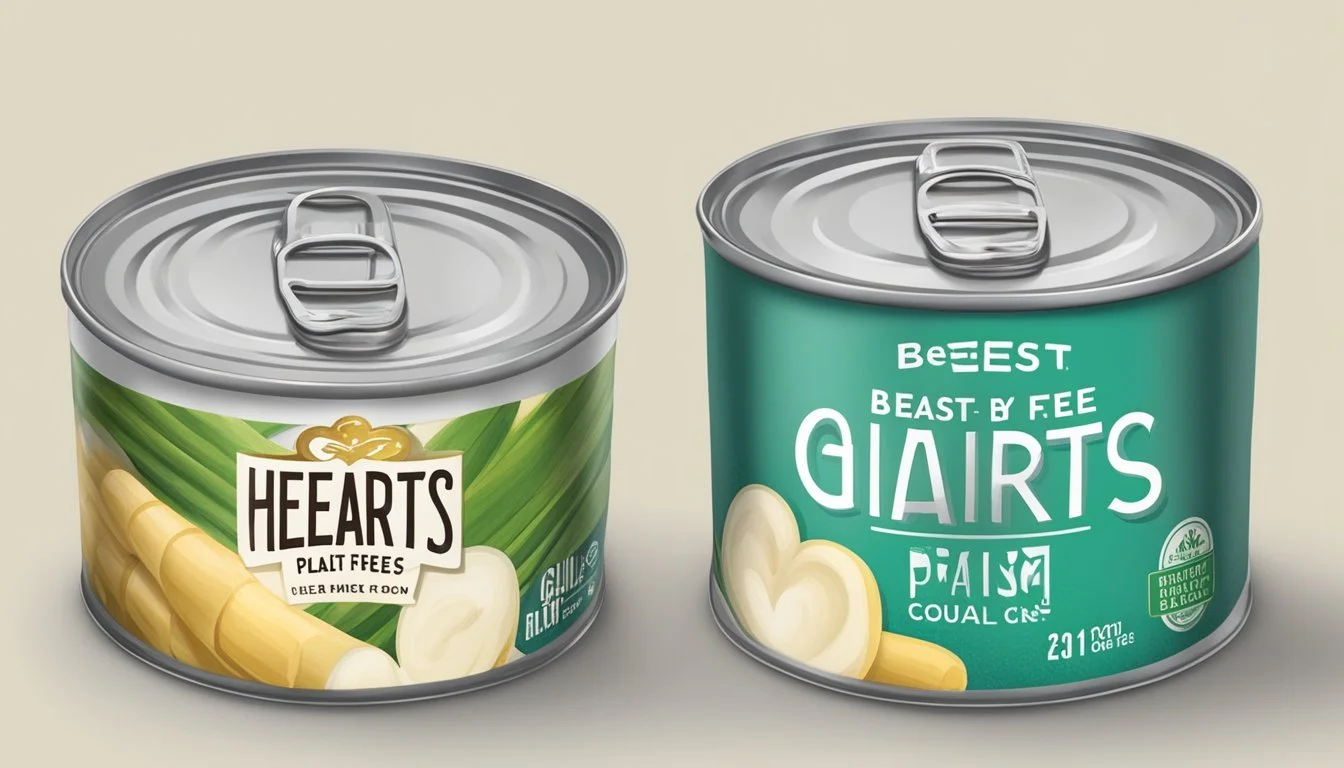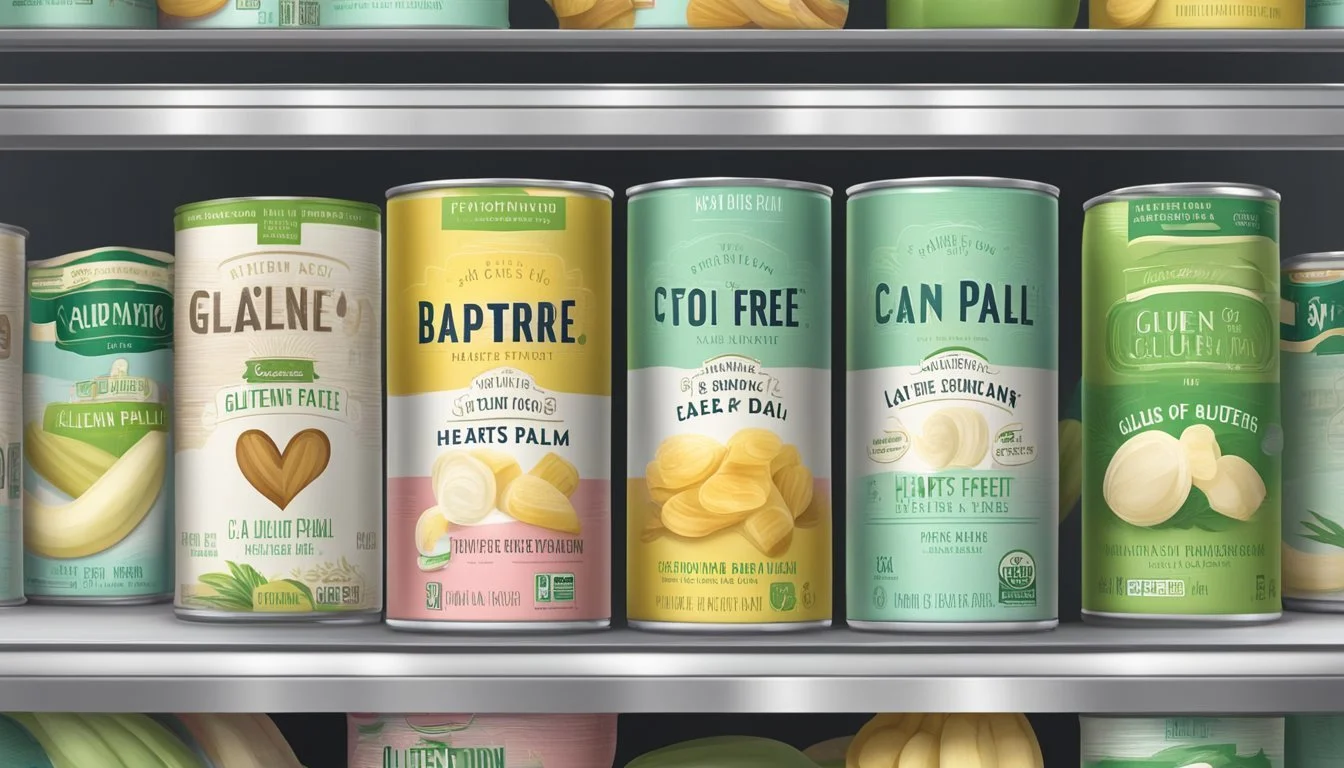How Long Does Gluten-Free Hearts of Palm Last?
Storage Tips and Shelf Life Insights
Unopened canned gluten-free hearts of palm typically last between 2 to 5 years from the date of packing. This shelf life can vary based on the brand and storage conditions, making it essential to always check the expiration date on the can. Proper storage in a cool, dry place can help ensure they remain fresh for as long as possible.
Hearts of palm are not only a versatile ingredient but also a nutritious one. They are naturally gluten-free, making them suitable for those with dietary restrictions. Additionally, hearts of palm are low in calories and fat while providing a decent amount of fiber, which is beneficial for digestion and overall health.
Those following a vegan or plant-based diet can enjoy hearts of palm as a substitute for meat in various dishes. They can be incorporated into salads, pasta dishes, or tacos, offering a nutritious and tasty option that aligns with gluten-free, vegan, and plant-based dietary needs.
Understanding Hearts of Palm
Hearts of palm are a unique vegetable harvested from the inner core of specific palm trees. They offer a range of nutritional benefits and are an excellent ingredient for those on gluten-free diets.
Origin and Sources
Hearts of palm come from the inner core of certain palm trees, primarily found in tropical regions of South America and Southeast Asia. The most common sources are the peach palm, palmetto, and acai palm trees. Harvesting involves cutting down the tree and extracting the soft core, a delicate process to ensure quality.
These palm hearts are then canned or jarred to preserve their freshness, making them widely available in grocery stores.
Nutritional Profile
Hearts of palm are a low-calorie food, making them ideal for weight-conscious individuals. A typical serving contains about 36 calories, 0.5 grams of fat, 4 grams of carbohydrates, and 3 grams of fiber, which aids digestion.
They are also rich in essential vitamins and minerals like Vitamin C, potassium, and magnesium. These nutrients support various bodily functions, including immune health, muscle function, and bone strength.
Gluten-Free Benefits
For those with celiac disease or gluten sensitivities, hearts of palm are naturally gluten-free, making them a safe ingredient. They can substitute for gluten-containing foods in recipes, such as using shredded hearts of palm in place of pasta or as a filler in dishes.
Their versatility extends to salads, dips, and main courses. This adaptability and safety make hearts of palm a valuable addition to gluten-free diets, providing both nutrition and culinary variety without causing adverse reactions.
Culinary Uses of Hearts of Palm
Hearts of palm is a versatile ingredient perfect for adding crunch, texture, and flavor to a variety of dishes. They can be used in salads, stir-fries, soups, or as a low-carb alternative to pasta.
Versatility in Recipes
Hearts of palm can be integrated into a wide array of recipes. In salads, they add a refreshing crunch, pairing well with other vegetables.
In stir-fries, they absorb flavors while maintaining their firm texture. They are also excellent in soups, providing body and subtle flavor to broths. This ingredient's flexibility makes it a staple in both cooked and raw dishes.
Texture and Flavor
Hearts of palm are celebrated for their unique texture and mild taste. They have a slight crunch, which remains even after cooking, making them a delightful addition to any recipe.
Their flavor is subtle and slightly tangy, and pairs well with a variety of seasonings, including salt, garlic, and herbs. This neutral profile allows them to complement strong and mild flavors alike.
Hearts of Palm as Pasta Substitute
Hearts of palm make a great low-carb pasta alternative. They are often used in place of traditional pasta in dishes like hearts of palm pasta or zoodles, offering a healthier option.
To prepare, they can be boiled in salted water for 5-7 minutes until al dente. They are compatible with many pasta sauces and ingredients, making them a versatile substitute for those on low-carb diets.
Health Considerations
Gluten-free hearts of palm not only cater to dietary restrictions but also offer several health benefits. It's essential to consider aspects like weight management, sodium levels, and potential allergens when incorporating them into your diet.
Weight Management and Fiber
Hearts of palm are low in calories, making them suitable for weight loss programs. A 100g serving contains just around 20 calories. This can help in creating a calorie deficit essential for weight loss.
Additionally, hearts of palm are rich in dietary fiber, with about 3g per serving. Fiber is crucial for digestive health and can promote a feeling of fullness, which helps in reducing overall calorie intake. This is particularly beneficial for those aiming to lose weight.
Sodium and Blood Pressure
One concern with hearts of palm, especially when canned, is their sodium content. High levels of sodium can contribute to elevated blood pressure. Consumers should check the sodium content on labels, as it can vary between brands.
Low-sodium options are preferred for those monitoring their blood pressure. Ensuring proper storage conditions and choosing fresh hearts of palm when possible can also help manage sodium intake.
Allergies and Dietary Restrictions
Hearts of palm are naturally gluten-free and vegan, making them an excellent choice for those with gluten allergies or celiac disease. As a grain-free product, they fit well into various dietary regimens, including vegan and grain-free diets.
No common allergens are associated with hearts of palm, but it's always advisable to check if they are processed in facilities that handle other allergens. This ensures the product meets specific dietary needs without cross-contamination.
Storage and Shelf Life
Proper storage and handling are essential to maximize the freshness and nutritional value of gluten-free hearts of palm. This guide will cover important storage techniques, expected shelf life, and how to identify signs of spoilage.
Proper Storage Techniques
Storing gluten-free hearts of palm properly ensures they remain fresh and safe to eat. Unopened cans should be kept in a cool, dry place like a pantry. Once opened, hearts of palm should be refrigerated.
They should be transferred to an airtight container if not stored in the original can, as this helps maintain quality. Frozen hearts of palm should be kept in a sealed, freezer-safe bag and can last for up to two months.
Raw hearts of palm, which are more perishable, should be kept in the refrigerator and used within 10 days.
Shelf Life of Hearts of Palm
The shelf life varies based on whether they are unopened, opened, or raw. Unopened canned hearts of palm generally last 2 to 5 years when stored correctly.
Opened cans of hearts of palm should be used within 3 to 5 days.
Frozen hearts of palm last up to two months, but it's crucial to monitor for freezer burn or texture changes.
Raw hearts of palm have a much shorter shelf life, lasting about 10 days in the refrigerator. Always observe storage dates to ensure quality and safety.
Signs of Spoilage
Recognizing spoilage in hearts of palm is important for food safety. Check for any off smells or discoloration. The presence of mold, a foul odor, or slimy texture indicates spoilage and they should be discarded.
Canned hearts of palm may show signs of rust, leaks, or bulging, all of which point to contamination. If found, do not consume the product.
Frozen hearts of palm past their prime may develop a freezer burn or become mushy. Careful attention to these signs helps ensure hearts of palm are safe and enjoyable to eat.
Brand and Product Insight
Several brands produce gluten-free hearts of palm pasta, each offering unique nutritional benefits, and varying levels of consumer satisfaction.
Popular Brands and Variants
Trader Joe’s is well-known for its affordable hearts of palm pasta. This product is appreciated for its mild taste and firm texture.
Palmini offers a similar product, available in various forms such as linguine and lasagna sheets. They are often praised for their low-calorie content and versatility in recipes.
Other brands, like Artichoke Heart, provide unique blends, combining hearts of palm with other vegetables for added flavor and nutrition. These products cater to niche markets looking for innovative culinary options.
Consumer Reviews and Feedback
Feedback on hearts of palm pasta is generally positive. Customers appreciate the low-calorie and low-carb aspects of these alternatives.
Trader Joe’s hearts of palm pasta often receives high marks for its taste and affordability. Some users, however, comment on its slightly crunchy texture, which may require different cooking techniques.
Palmini's products are also well-reviewed, particularly for their convenience and health benefits. The packaging clearly indicates cooking instructions, which many consumers find helpful.
In contrast, niche products from brands like Artichoke Heart may have mixed reviews, largely due to varying taste preferences but remain popular among those seeking new flavors.







